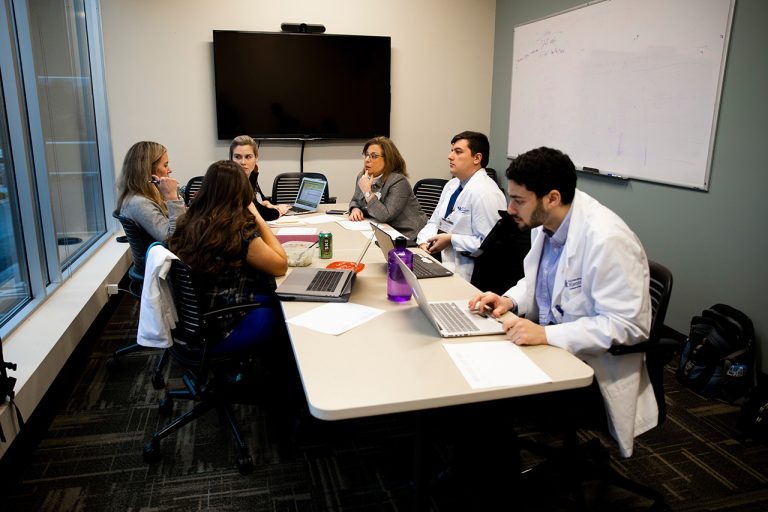When financial barriers prevent hard-working students from succeeding in college, every penny in scholarships and grants can make a difference. With the University of Kentucky’s top priority being centered on student success, faculty from colleges across campus are doing what they can to help students succeed.
The College of Social Work, in collaboration with faculty in the College of Health Sciences and the College of Medicine, has been awarded a new Health Resources and Services Administration (HRSA) grant to prepare students and health care professionals for work in Integrated Behavioral Healthcare settings.
Karen Badger, a professor in the College of Health Sciences with a joint appointment in the College of Social Work, is the principal investigator of the project. Pamela Weeks, director of field education and clinical associate professor in the College of Social Work, and Janet Ford, an associate professor in the College of Social Work, are coinvestigators.
The purpose of this grant is to improve access to behavioral health services in Kentucky for vulnerable and underserved individuals and communities by increasing the number of well-prepared behavioral health social workers in primary healthcare settings. The grant also supports interprofessional healthcare education and specialized training to students, faculty, and healthcare providers.
For academic year 20/21, 29 students who are participating in the IBH program will receive $290,000 in financial support through HRSA IBH stipends. The IBH Cognate Area of Study is offered on UK’s main campus and at UK MSW satellite sites in Eastern Kentucky to full and part-time MSW students in their last 30 credit hours of the MSW program. Full-time students earning an MSW are eligible for a $10,000 stipend, while part-time students are eligible for a $5,000 stipend.
HRSA reported that national projections of supply and demand for behavioral health practitioners predict significant shortages by 2025. This shortage of health professionals is even more acute in rural areas. The project is designed to improve access to behavioral health services for patients in underserved communities by increasing the number of well-prepared social workers entering the workforce.
“IBH students will learn how to address behavioral health concerns including mental illness, family violence, psychological trauma, and substance misuse, as well as behavioral components in conditions such as diabetes, insomnia, and chronic pain,” Weeks explained. “A well-trained, competent behavioral health workforce is necessary to meet our nation’s growing need and the rapidly changing health care environment. MSW IBH students will integrate classroom learning with hands-on clinical experience in primary care settings to offer access to services for patients with a wide range of behavioral health problems.”
In addition to financial assistance for students, the grant team and their community partners aim to improve patient access to integrated behavioral health services in primary care settings. Under the new grant, additional specialized IBH field education sites [BKS1] have been developed to expand the project in Central and Eastern Kentucky in order to prepare students to join the integrated health care workforce.
Read more about the IBH Cognate Certificate here. Interested students should contact Pam Weeks at plweeks@uky.edu.





